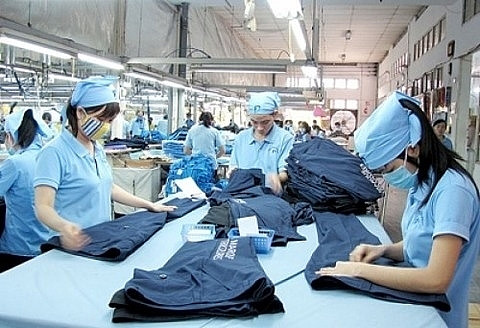Local businesses advised to capitalize on FTAs
- New Textile & Garment and Footwear Machinery and technology to be displayed in HCM City
- Supply chain optimisation boosts garment firms' competitiveness
Vietnam has so far engaged in a total of 16 FTAs, ten of which have been signed and implemented. However, local businesses have faced tough competition in the domestic market and have not yet utilized the existing FTAs for their export activities.
According to the Department of E-commerce and Digital Economy under the Ministry of Industry and Trade (MoIT), as many as 458,285 sets of C/O (certificate of origin) worth US$22.7 billion were granted in the first half of this year, up 36% in value and a 33% increase in the number of documents granted in comparison to the same period in 2017.
 |
Total turnover of export goods using different types of preferential C/O in the reviewed period reached US$20.4 billion, accounting for 38% of total export turnover to FTA participating markets. This is a steadily rising figure as the rates for using a preferential C/O made up only 10% in the early years of FTAs when they had recently been carried out.
Dr. Le Quoc Phuong, former deputy director of the MoIT's Industry and Trade Information Center, attributed the strong increase in exported goods, primarily from the FDI sector to FTAs. He noted that FDI businesses have so far been the main benefactors of FTAs while local businesses have not yet satisfied the requirements set by FTAs.
Dr. Phuong emphasized the benefits that FDI businesses have had by pointing out that ten years ago they only constituting for 40% of export proportions, with the current figure having risen to over 70% to date. Since Vietnam’s entry to the World Trade Organizations (WTO), there has been a consistent downward trend in the export proportions of domestic busineses and an upward trend in the export proportion of FDI enterprises.
Vietnam has made a great deal of effort to participate in negotiations for FTAs, Dr. Phuong noted, but so far benefits from these agreements have been still below expectation.
FDI busineses - major beneficiaries of FTAs
Dr. Le Quoc Phuong said that with its participation in FTAs, Vietnam should fully open its market for foreign businesses to sell goods and allow them preferential treatment when investing. Under new-generation FTAs, investors enjoy broader rights, whilst those of the Government’s power become more limited.
Mr Phuong identified shortcomings in some economic sectors such as banking- finance, investment and agriculture in Vietnam and Vietnamese businesses’ poor competitiveness in comparison to FDI businesses, resulting in a failure within the domestic market.
Tran Huu Huynh, President of the Vietnam International Arbitration Centre (VIAC) said FTAs have opened up plenty of opportunities for exports, but Vietnam has not yet fully tapped into the preferential treatment in trade and goods presented by these FTAs.
Despite having strongly exported traditional products such as garments, textiles and footwear, Vietnam has mainly been used as an outsourcing destination for other nations who have high labor costs. Under the FTAs, there are preferential tariffs in place for other items that Vietnam has exported such as rice, pepper, cashew nuts and coffee.
Huynh also advised local businesses to make the most of overseas Vietnamese communities in order to fully explore the foreign markets.

